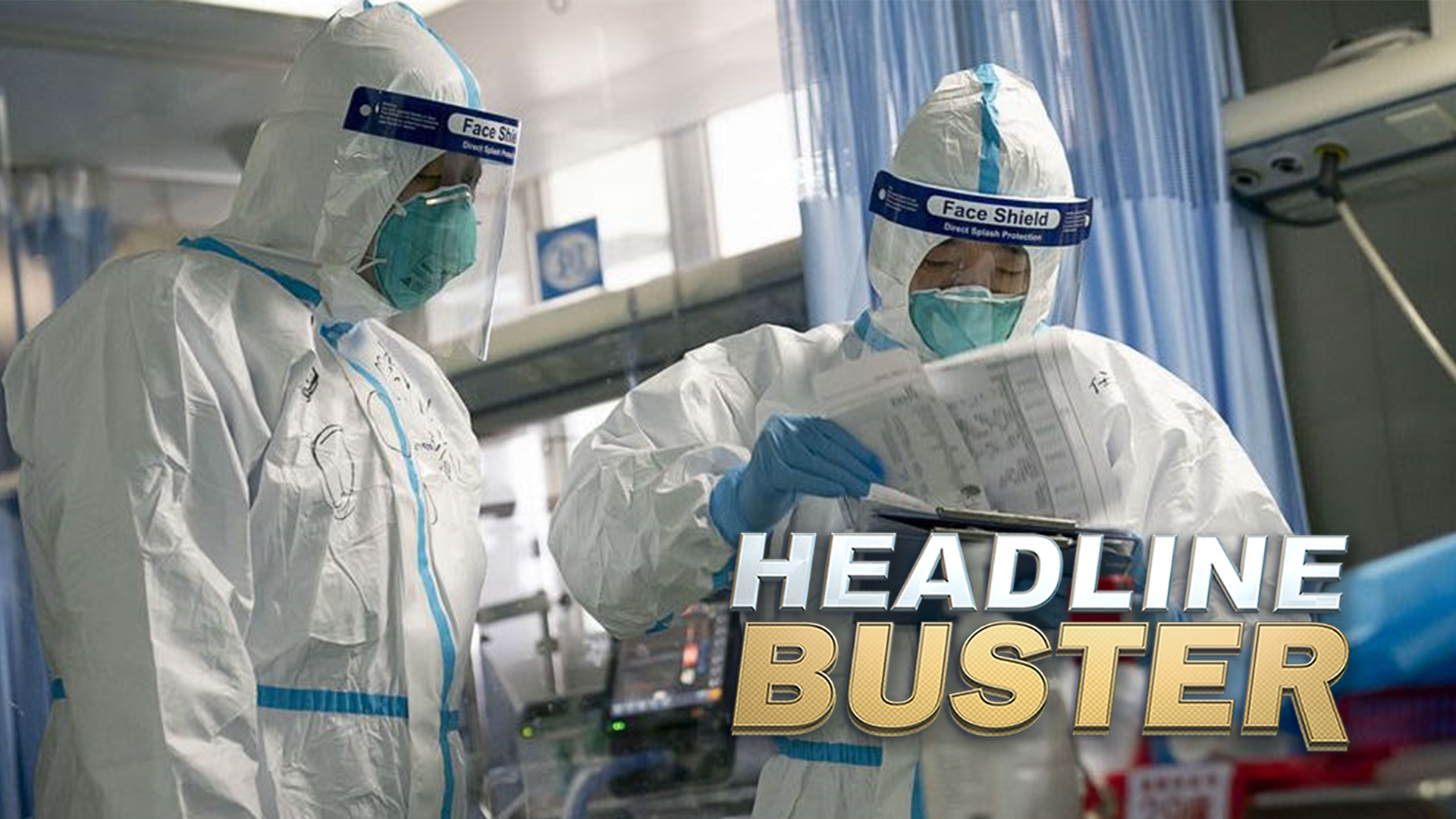12:31

As the world enters its ninthmonth of battling coronavirus, we want to go back to the early stage of the pandemic and revisit some media reportsto see ifthey werefair about China's response.
Nobody can predict the future, but some of these reports not only triedbut wanted readers to believe they had a real point. Didthey? Let's first refresh our memory.
As of August 27, theChinese mainland reported a totalof85,013 COVID-19 cases. 80,091 people had been discharged after recovery, and 4,634 had diedof the virus. That's for a country of almost 1.4 billion people.China ranks28thin the number of deaths caused by the virusso far, according to Johns Hopkins University.
Wuhan, where the virus was first detected, bore the brunt of the hardship.
On January 23, the central government of China imposed a lockdown in Wuhan and other cities in Hubei Province to prevent the virus from further spreading.
For 76 days, these people were in strict quarantine, while the rest of China also took stringent measures - fever checks, face masks, social distancing - all of these steps weren't fun or easy, but theypaid off.
Earlier this month, Wuhan celebrated its victory over the virus by holding an epic pool party.
Packed with revelers, the pool party symbolized how far the city had come and what's possible with discipline, sacrificeand cooperation.
After a hard first quarter, the Chinese economy hasrebounded. China is reportedly the only major economy expected to register positive growththis year. Even the hobbled China-U.S. trade deal seems to be moving forward.
So the picture has changed a lot. So when we look back, just how off were some of these media reports?
The
Guardian
on February 2 published the opinion piece titled "China's reaction to the coronavirus outbreak violates human rights."
It criticizes the WHO for praising China's response when Dr. Tedros, Director-General of the World Health Organization, tweeted: "China is actually setting a new standard for outbreak response.”
The piece says, "The WHO is ignoring Chinese government suppression of human rights regarding the outbreak, including severe restrictions on freedom of expression" and "that the Chinese government can lock millions of people into cities with almost no advance notice should not be considered anything other than terrifying."
Yes, the decision was hard. But now we see that the decision was, most importantly, effective.
Not only that, but it was replicated by many countries when they were faced with their own outbreaks.
From afar, it was easy for critics to call China's measures draconian, authoritarian, and a violation of human rights.
But when the virus showed up in their own backyard, they started to see things quite differently.
On February 3, the
Wall Street Journal
published an opinion piece titled "China Is the Real Sick Man of Asia," which attacked China's financial markets, saying they may be more dangerous than the China's wildlife markets.
It argued that: "The Wuhan government was secretive and self-serving; national authorities responded vigorously but, it currently appears, ineffectively. China's cities and factories are shutting down; the virus continues to spread.”
Well, in hindsight, this piece is quite embarrassing. It quickly became clear that China's response was effective – much more so than some other countries that were more intent on criticizing China than preparing for their own outbreaks.
Yes, China's factories shut down for a while, and yes, China's economy took a 6.8 percent dip in the first quarter.
But in quarter two, China's economy witnessed a rebound, growing 3.2 percent from a year earlier.
And then there were the numerous reports calling COVID-19 China's "Chernobyl moment," that the virus would trigger the collapse of China as we know it.
Well, not only are we still standing tall, but according to a recent Harvard's Kennedy School report, 93 percent of Chinese people are satisfied with the central government. Which other country enjoys that kind of high trust?
So the next time you read a piece predicting the fall of China, take a step back, think about the facts, and ask yourself whether it's fear-mongering or a realistic question.
And to those who try to peddle the China collapse theory, please, just be a little more realistic. You don't want to make yourself a public embarrassment.
(If you want to contribute and have specific expertise, please contact us at
 简体中文
简体中文

